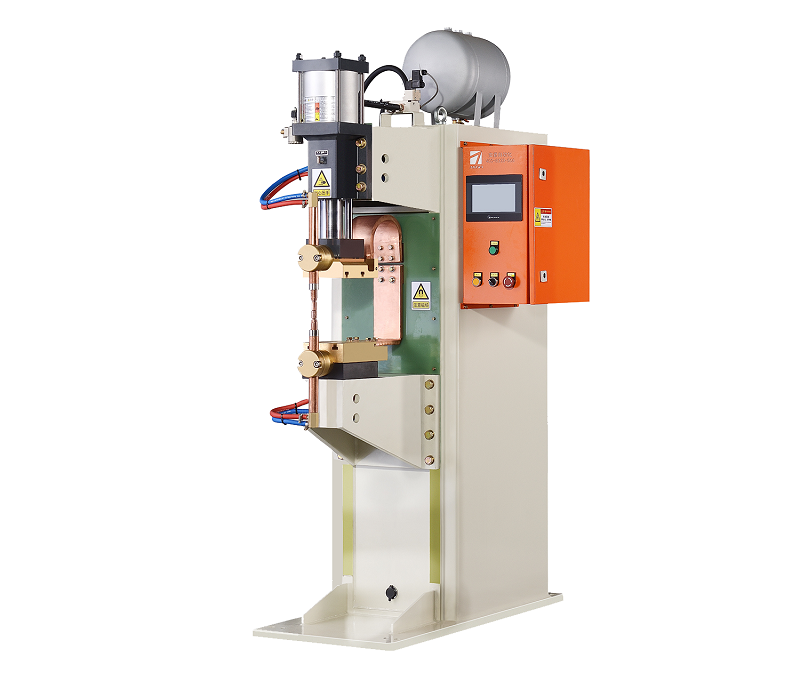- Home
- News
- Four Categories of Electrode Materials for Medium-Frequency Inverter Spot Welding Machines
Four Categories of Electrode Materials for Medium-Frequency Inverter Spot Welding Machines
Electrodes play a crucial role in medium-frequency inverter spot welding machines, as they are responsible for conducting current and creating welds. The choice of electrode material significantly impacts the welding performance, durability, and overall quality of the spot welds. In this article, we will discuss the four main categories of electrode materials commonly used in medium-frequency inverter spot welding machines.

- Copper Electrodes: Copper is one of the most widely used electrode materials due to its excellent electrical conductivity, thermal conductivity, and resistance to heat and wear. Copper electrodes provide good weldability and can withstand high currents, making them suitable for various applications. They are relatively cost-effective and offer good durability when properly maintained.
- Refractory Metal Electrodes: Refractory metals, such as tungsten and molybdenum, are known for their high melting points, excellent heat resistance, and low electrical resistance. These characteristics make them ideal for applications requiring high-temperature resistance and prolonged welding cycles. Refractory metal electrodes are commonly used in industries where welding of high-strength materials and dissimilar metals is required.
- Composite Electrodes: Composite electrodes are made by combining different materials to optimize specific welding requirements. For example, copper-tungsten electrodes combine the excellent electrical conductivity of copper with the high-temperature resistance of tungsten. These composite electrodes offer improved performance in terms of heat dissipation, wear resistance, and extended electrode life.
- Specialized Electrodes: Certain applications may require specialized electrode materials tailored to specific welding conditions. For instance, electrodes with coatings or surface treatments, such as chrome-zirconium-copper (CrZrCu) coatings, are used to enhance wear resistance and prevent adhesion of weld spatter. Other specialized electrode materials may include alloys or composites designed for specific applications, such as welding of galvanized or coated materials.
The choice of electrode material in medium-frequency inverter spot welding machines depends on factors such as the application requirements, material being welded, welding parameters, and desired weld quality. Copper, refractory metals, composite materials, and specialized alloys offer unique properties that can optimize welding performance and electrode longevity. Manufacturers should carefully consider these electrode material options and select the most suitable one based on their specific welding needs. Additionally, proper maintenance and care of the electrodes are essential for maximizing their lifespan and ensuring consistent and high-quality spot welds.